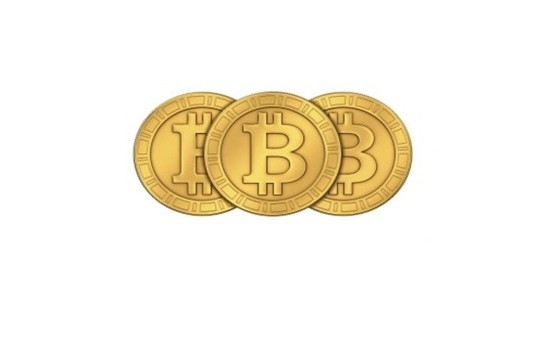갤러리 이슈박스, 최근방문 갤러리
연관 갤러리
비트코인 갤러리 타 갤러리(0)
이 갤러리가 연관 갤러리로 추가한 갤러리
0/0
타 갤러리 비트코인 갤러리(0)
이 갤러리를 연관 갤러리로 추가한 갤러리
0/0
개념글 리스트
1/3
- 김수현 vs 가세연 싸움에 멱살 잡힌 차은우 ㅇㅇ
- 싱글벙글 AI도 못 푸는 문제 ㅇㅇ
- 싱글벙글 메카에 방문한 시크교 창시자 이야기...jpg ㅇㅇ
- 특수본, 계엄의 밤 민주당,국힘 텔레그램 공개 나무
- 美정부직원에게 '중국인과 성관계금지령' ㄷㄷㄷ ㅇㅇ
- 로또에서 지옥으로 변했다, 입주자도 없는데 계속 지어.jpg ㅇㅇ
- 싱글벙글 현재 논란중인 마비노기 모바일 근황 ㅇㅇ
- 고기구울때 간장물도 백종원이 개발한거 알고있냐? 백갤러
- 지금 논란인 정청래 이 여조 올린 이유가 뭐임? ㅇㅇ
- 4일에 연차냈는데 이상하게생각하는거같다.. ㅇㅇ
- 추성훈한테 로우킥 한번 맞고 싶었던 홍석천 감돌
- 설리 친오빠가 김수현이 설리집에 간적있었다하네 ㅇㅇ
- 하루에 3캔 마셨다가 심장 멈추고 돌연사한 20대 ㅇㅇ
- 국민연금 月 500만원 넘게 받는 '부부 수급자' 처음 나왔다.jpg ㅇㅇ
- 월 30만원 냈는데 정책 위배래요.. 챗GPT 지브리 스타일 안 된다? 감돌
라이라이 천조국의 관세 계산식...jpg
- 관련게시물 : 속보속보 트럼프, 전세계 상대로 관세 발표 오늘 새벽 트황상의 관세 발표에 미주갤을 비롯한 주식커뮤는 물론 전세계 경제계가 대환장에 빠진건 방구석 싱붕이들도 들었을 것인데... 여기서 다들 의문에 빠진건 바로 관세 계산식 대체 무슨 기준으로 매겼길래 아예 인구수 0의 맥도날드 제도 (펭귄 거주중)까지 10%를 때림ㅋㅋ 옆나라 갓본에서도 석박사들이 대가리를 싸매고 비밀을 풀기위해 나섰으며 주식빼고 다 잘하는 미주갤에선 농산물 관세때문에 밉보인거다 vs 식량안보는 개나줬냐, 일본은 그럼 왜맞았냐 하고 평소의 wwe가 아닌 ufc가 열렸으나트럼프가 갖고나온 관세표에서 뭔가 기시감을 느낀 미주갤럼 하나가 뭐 복잡한 식이 있던게 아니라 그냥 [수출÷수입 이후 나누기 2]때린 해병-계산식이란걸 발견함ㅋㅋ 여기에 짱깨처럼 맘에 안들면 걍 +20% 때리고 수출수입 없으면 무지성 10% 박은거 악!!! 관 세를매기고숏치는건즐거워 해병님의 6.974초간의 마라톤 회의 끝에 전세계 모든 기열국가에게 공평하게 관세를 먹였으니 여간 기합이 아니겠는가 헤이빠빠리빠 헤이빠빠리빠- 싱글벙글 트럼프가 이해 안가는 이유기축통화국이라는 지위는 종이쪼가리를 마구 찍어내 그걸 식품, 자동차, 반도체, 자원 등 실제 가치가 있는 물건으로 마음껏 교환할 수 있는 지위임 수출로 먹고 사는 나라가 무역적자라면 그건 위험신호지만 미국이 무역적자라는건 그만큼 종이쪼가리를 수많은 실물 상품으로 교환했다는 의미인데 이새끼는 그걸 미국이 착취 당하고 있다고 말함 - 싱글벙글 관세 10% 펭귄섬 평소 풍경....jpg생각보단 인구 많음 - 속보) 관세 10% 부과에 분노한 맥도날드섬 주민들 폭동 일으켜ㄷㄷㄷㄷ- 군첩군첩 펭귄섬에 가려진 또 다른 꿀잼 관세 지역 여기 보면 British Indian Ocean Territory (영국령 인도양)도 펭귄섬이랑 같이 관세 10% 맞았는데이곳은 섬은 여러개 있지만 실제 사람이 사는 섬은 디에고 가르시아 섬 하나로 그 디에고 가르시아 섬에는 활주로가 딸린 군 기지가 하나 있고 이 기지에 사는 사람들이 사실상 영국령 인도양 지역의 전 인구인데 슬슬 감이 오겠지만 그 기지는 영국 / 미국이 공동 운영중이다 즉 미국 정부가 미국 군부대에 관세를 때린 것 - 관세에 대한 국가별 반응 정리- [속보]관세 관련 Ray Dalio 의견Tariffs are taxes that:1) raise revenue for the country imposing them that both the foreign producers and the domestic consumers pay (how much paid by each depends on their relative elasticities), which makes them an attractive tax2) reduce the global efficiencies of production3) are stagflationary for the world as a whole, more deflationary for the tariffed producer, and more inflationary for the importer that imposes the tariffs4) make companies in the importing/tariffing countries more protected from foreign competition in the domestic market, which make them less efficient but more capable of surviving if aggregate domestic demand is maintained through monetary and fiscal policy5) are necessary in times of an international great power conflict to assure domestic capabilities for production6) can reduce both current account and capital account imbalances, which in plain English means reducing the dependencies on foreign production and foreign capital which is especially valued in times of global geopolitical conflicts/wars.Those are the first order consequences.A lot of what happens from there depends on how:tariffs are responded to by the tariffed country/countriescurrency rates are changedmonetary policies and interest rates are changed by the central banks andfiscal policies are changed by the central governments in response to these pressures.Those are the second order consequences.More specifically regarding these:1) if tariffs are responded to with reciprocal tariffs, the effects will be more broad-based stagflation,2) if the monetary policies are eased, real interest rates decline, and the currency is weakened in countries where the deflationary forces are greatest (which is a normal central bank response) and/or the monetary policy is tightened, real rates are raised, and the currency is strengthened where the inflationary forces are greatest (which is a normal central bank response) and/or3) the fiscal policy is eased where there is disinflationary weakness and/or fiscal policy is tightened where there is inflationary strength, with such changes neutralizing some of the deflationary or inflationary effects.So there are a lot of moving parts and there is a lot to measure in order to judge the market impacts of big tariffs. These impacts go beyond the first six first points I made about the first order effects of tariffs, which are influenced by the second order effects I referred to.However, what is clear as the background and the future is that:1) the production, trade, and capital imbalances (most importantly the debts) must come down one way or another, because they are dangerously unsustainable for monetary, economic, and geopolitical reasons (so the current monetary, economic, and geopolitical orders must change)2) they will likely come with abrupt, unconventional changes (like those I describe in my new book How Countries Go Broke: The Big Cycle) and3) the longer term monetary, political, and geopolitical effects will depend mostly on the trust in the quality of the debt and capital markets as a safe store-hold of wealth, countries' productivity levels, and the political systems that make countries attractive places to live, work, and invest.Additionally, there is a lot of talk now about whether it is a helpful or harmful thing that 1) the the U.S. dollar is the world’s primary reserve currency and 2) the dollar is strong. It is clearly a good thing that the dollar is a reserve currency (because it creates a greater demand for its debt and other capital than would otherwise exist if the U.S. doesn’t have that privilege to abuse via over-borrowing). Though since the markets drive such things, it inevitably contributes to abusing this privilege and over-borrowing and debt problems which has gotten us to where we now are (i.e., needing to deal with the inevitable reducing of goods, services, and capital imbalances, needing to take extraordinary measures to reduce the debt burdens, and reducing foreign dependencies on these things because of geopolitical circumstances.) More specifically, it has been said that China’s RMB should be appreciated which probably could be agreed to between the Americans and Chinese as part of some trade and capital deal, ideally made when Trump and Xi meet. That and/or other non-market, non-economic adjustments would have unique and challenging impacts on the countries they apply to, which would lead to some of the second order consequences I mentioned earlier happening to cushion the effects.I will watch what is to come and will keep you posted on what I think will be the first and second order consequences.### 번역관세는 다음과 같은 세금입니다: 1) 관세를 부과하는 국가에 수입을 창출하며, 외국 생산자와 국내 소비자가 각각 부담하는 비율은 상대적 탄력성에 따라 달라지는데, 이는 관세를 매력적인 세금으로 만듭니다. 2) 글로벌 생산 효율성을 감소시킵니다. 3) 세계 전체적으로는 스태그플레이션(물가 상승과 경제 정체)을 초래하며, 관세를 부과받는 생산자에게는 디플레이션(물가 하락)적이고, 관세를 부과하는 수입국에는 인플레이션(물가 상승)적입니다. 4) 수입국/관세 부과 국가의 기업들이 국내 시장에서 외국 경쟁으로부터 보호받게 되어 효율성은 떨어지지만, 통화 및 재정 정책을 통해 국내 총수요가 유지된다면 생존 가능성이 높아집니다. 5) 국제적 강대국 간 갈등 시에는 국내 생산 능력을 보장하기 위해 필요합니다. 6) 경상수지와 자본수지 불균형을 줄일 수 있으며, 이는 평이하게 말하면 외국 생산과 자본에 대한 의존도를 줄이는 것을 의미하며, 이는 글로벌 지정학적 갈등/전쟁 시기에 특히 가치가 있습니다. 이것이 1차적 결과입니다. 그 이후의 일은 다음에 따라 크게 달라집니다: - 관세를 부과받은 국가/국가들의 대응 방식 - 환율의 변화 - 중앙은행의 통화 정책 및 금리 변화 - 중앙정부의 재정 정책 변화 이것이 2차적 결과입니다. 더 구체적으로: 1) 관세에 상호 관세로 대응하면 효과는 더 광범위한 스태그플레이션이 됩니다. 2) 디플레이션 압력이 큰 국가에서 통화 정책을 완화하고 실질 금리를 낮추며 통화를 약화시키거나(중앙은행의 일반적인 대응), 인플레이션 압력이 큰 국가에서 통화 정책을 긴축하고 실질 금리를 올리며 통화를 강화시키면(역시 일반적인 대응), 3) 디플레이션적 약세가 있는 곳에서 재정 정책을 완화하거나 인플레이션 강세가 있는 곳에서 재정 정책을 긴축하면, 이러한 변화가 디플레이션 또는 인플레이션 효과를 일부 중화합니다. 따라서 큰 관세의 시장 영향을 판단하려면 많은 변수와 측정해야 할 요소가 있습니다. 이는 제가 언급한 관세의 1차적 6가지 효과를 넘어, 2차적 효과에 의해 영향을 받습니다. 그러나 배경과 미래로 분명한 것은: 1) 생산, 무역, 자본 불균형(특히 부채)은 통화, 경제, 지정학적 이유로 위험할 정도로 지속 불가능하므로 어떤 식으로든 줄어들어야 하며, 현재의 통화, 경제, 지정학적 질서가 바뀌어야 합니다. 2) 이는 제가 새 책 *How Countries Go Broke: The Big Cycle*에서 설명한 것처럼 급작스럽고 비전통적인 변화와 함께 올 가능성이 높습니다. 3) 장기적인 통화, 정치, 지정학적 효과는 주로 부채와 자본 시장의 안전한 자산 보유처로서의 신뢰도, 국가의 생산성 수준, 그리고 국가를 살고 일하고 투자하기 매력적인 곳으로 만드는 정치 시스템에 달려 있습니다. 추가로, 현재 미국 달러가 세계 주요 기축통화인지, 그리고 달러가 강세인지가 도움이 되는지 해로운지에 대한 논의가 많습니다. 달러가 기축통화인 것은 분명 좋은 일입니다(왜냐하면 이는 미국이 과도하게 차입할 수 있는 특권이 없었을 때보다 부채와 기타 자본에 대한 수요를 더 많이 창출하기 때문입니다). 하지만 시장이 이런 것들을 주도하기 때문에, 이는 필연적으로 이 특권을 남용하고 과도한 차입과 부채 문제로 이어져 지금 우리가 처한 상황(즉, 상품, 서비스, 자본 불균형을 줄이고, 부채 부담을 줄이기 위한 특별한 조치를 취하며, 지정학적 상황 때문에 이에 대한 외국 의존도를 줄여야 하는 상황)에 이르게 했습니다. 더 구체적으로, 중국의 위안화(RMB)가 절상되어야 한다는 의견이 있으며, 이는 트럼프와 시진핑이 만날 때 미국과 중국 간의 무역 및 자본 거래의 일부로 합의될 수 있을 것입니다. 그러한 비시장적, 비경제적 조정은 관련 국가에 독특하고 도전적인 영향을 미치며, 앞서 언급한 2차적 결과 중 일부가 그 효과를 완화하기 위해 발생할 것입니다. 저는 앞으로 일어날 일을 지켜보고, 1차 및 2차 결과에 대해 제가 생각하는 바를 계속 알려드리겠습니다. ---### 3줄 정리1. 관세는 수입을 늘리고 국내 기업을 보호하지만, 글로벌 효율성을 떨어뜨리고 스태그플레이션을 유발한다. 2. 2차 효과는 국가 간 대응, 통화·재정 정책 변화에 따라 달라지며, 불균형 해소와 지정학적 요인이 중요하다. 3. 달러의 기축통화 지위는 이점이 있지만 과도한 차입으로 부채 문제를 악화시키며, 위안화 절상 등 비경제적 조정이 영향을 미칠 수 있다.
작성자 : ㅇㅇ고정닉
차단하기
설정을 통해 게시물을 걸러서 볼 수 있습니다.









댓글 영역
획득법
① NFT 발행
작성한 게시물을 NFT로 발행하면 일주일 동안 사용할 수 있습니다. (최초 1회)
② NFT 구매
다른 이용자의 NFT를 구매하면 한 달 동안 사용할 수 있습니다. (구매 시마다 갱신)
사용법
디시콘에서지갑연결시 바로 사용 가능합니다.